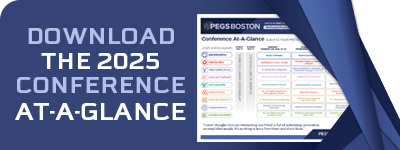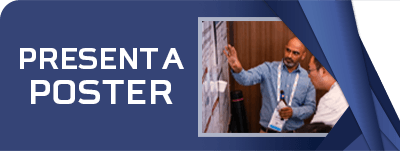Cambridge Healthtech Instituteのトレーニングセミナーでは、学術的な理論や背景を幅広くカバーするとともに、実際のケーススタディ、遭遇した問題、適用されたソリューションを提供します。各トレーニングセミナーでは、正式な講義とインタラクティブディスカッションやアクティビティを組み合わせて、学習経験を最大限に高めることができます。経験豊富な講師が、現在の研究に適用可能なコンテンツに焦点を当て、この分野に不慣れな人にも重要なガイダンスを提供します。
トレーニングセミナーは、対面のみで提供
一貫性と集中できる学習環境を確保するため、
会議セッションとトレーニングセミナー間の移動は禁止されています。
Monday, May 12, 2025 8:30 am - 6:05 pm | Tuesday, May 13, 2025 8:30 am - 12:45 pm
TS3A: Introduction to Multispecific Antibodies: History, Engineering, and Application
Topics to be Covered:
- A brief history of bispecific antibodies: 60 years of progress with critical advances and key pioneers
- Bispecific applications and powerful mechanisms-of-action
- Engineering bispecific antibodies:100 formats and counting
- Bispecific-specific considerations in preclinical development and regulatory landscape
- Developability, manufacturing, and analytical considerations
- Clinical experience, translation, and regulatory approval
- Current trends and future opportunities in regulating immune checkpoints, cell-based therapies, and personalized approaches
INSTRUCTOR BIOGRAPHIES:
 G. Jonah Rainey, PhD, Associate Vice President, Eli Lilly and Company
G. Jonah Rainey, PhD, Associate Vice President, Eli Lilly and Company
TS7A: Introduction to Immunogenicity
TOPICS TO BE COVERED INCLUDE:
Part 1: Introduction to Immunology and Immunogenicity
- What is immunogenicity?
- Immunology and major mechanisms affecting immunogenicity
- B cell development
- Clinical consequences of ADA
- Risk-based approach
- Immunogenicity in the clinic Regulations and guidance governing immunogenicity
Part 2: Predictive Immunogenicity and Role of AI/ ML
Part 3: Clinical Considerations of Immunogenicity and Regulatory Expectations
Part 4: Assay Methodology and Approaches for Describing Immunogenicity in the Clinic
- Assay methodologies
- Comparison of different methods
- Screening, confirmation
- Characterization of anti-drug-antibodies
- Cut-points Immunogenicity of complex biologics (e.g. multi-domain, biosimilars)
- PK/PD and safety and efficacy-- as a measure
- Immunogenicity in the clinic - how to report
INSTRUCTOR BIOGRAPHIES:
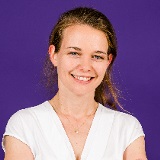 Chloé Ackaert, PhD, Senior Scientist, Immunogenicity, ImmunXperts, a Q2 Solutions Company
Chloé Ackaert, PhD, Senior Scientist, Immunogenicity, ImmunXperts, a Q2 Solutions Company
 Sofie Pattijn, Founder & CTO, ImmunXperts, a Q2 Solutions Company
Sofie Pattijn, Founder & CTO, ImmunXperts, a Q2 Solutions Company
 Bonnie Rup, PhD, Biotechnology Consultant, Bonnie Rup Consulting
Bonnie Rup, PhD, Biotechnology Consultant, Bonnie Rup Consulting
TS9A: Introduction to Protein Engineering
- What is protein engineering?
- Tools and techniques
- Engineering-by-design
- Designed libraries, display technologies
- Production and manufacturing
- Improving manufacturing by protein engineering methods
- Other protein modifications
- Expression of antibodies and fragments for discovery and testing
- Emerging molecule and product formats
- Antibody-drug conjugates (ADCs)
- AI/ML applications and limitations
- Other emerging approaches
INSTRUCTOR BIOGRAPHIES:
 David Bramhill, PhD, Founder, Bramhill Biological Consulting LLC
David Bramhill, PhD, Founder, Bramhill Biological Consulting LLC
TS10A: Antibody Drug Discovery: From Target to Lead
Topics to be covered include:
Different Sources of Antibodies
- Animals: mouse, rat, rabbit, chicken, llama, etc.
- Libraries: immune, synthetic, native, fully human, etc.
- B cells: memory B cells, plasma B cells, human, and animals
Antibody-Based Drug Modalities
- IgGs, IgA, IgM, Bites, nanobody, antibody fragments, etc.
- Naked antibody
- ADC
- Bispecific/multispecific
- CAR T
Antibody Engineering
- Affinity maturation
- Humanization
- Fc-engineering: half-life, immune effector function, etc.
Target Selection and Validation
Antibodies Targeting Complex Membrane Proteins
- GPCRs
- Ion channels
- Transporters and membrane-bound enzymes
Delivery of Antibodies
Crossing the Brain-Blood Barrier (BBB)
Case Studies
AI-based Protein and Antibody Design
INSTRUCTOR BIOGRAPHIES:
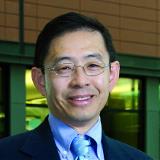 Zhiqiang An, PhD, Professor, Robert A. Welch Distinguished University Chair in Chemistry; Director, Texas Therapeutics Institute; Director, CPRIT Core for Antibody Drug Discovery; Vice President, Drug Discovery, University of Texas Health Science Center at Houston
Zhiqiang An, PhD, Professor, Robert A. Welch Distinguished University Chair in Chemistry; Director, Texas Therapeutics Institute; Director, CPRIT Core for Antibody Drug Discovery; Vice President, Drug Discovery, University of Texas Health Science Center at Houston
Tuesday, May 13, 2025 2:20 - 6:10 pm | Wednesday, May 14, 2025 10:20 am - 6:40 pm
TS9B: Introduction to Machine Learning for Biologics Design
- Basics of machine learning and where does it fit into drug discovery
- Modern homology modeling and structure prediction
- Predicting antibody affinity and specificity modulation
- Generative design in biologics: Library design and language models
- Machine learning applications of T cell and B cell immunogenicity
- Methods and application of ML for chemical, folding, solution stabilities
INSTRUCTOR BIOGRAPHIES:
 Christopher R. Corbeil, PhD, Research Officer, Human Health Therapeutics, National Research Council Canada
Christopher R. Corbeil, PhD, Research Officer, Human Health Therapeutics, National Research Council Canada
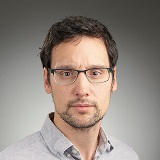 Francis Gaudreault, PhD, Associate Research Officer, Human Health Therapeutics, National Research Council Canada
Francis Gaudreault, PhD, Associate Research Officer, Human Health Therapeutics, National Research Council Canada
TS10B: Introduction to Antibody-Drug Conjugate Design: Targets, Payloads, and Linkers
Topic areas to be covered include:
- An overview of the history of ADCs, emphasizing key developments and discoveries that shape the current therapeutic landscape
- Principles and lessons in target selection
- Antibody engineering: considerations and current trends
- Conjugation and linker chemistry, past and present payload design and selection
- Designing effective lead identification and screening strategies
- Next-generation ADC technology:
- What does the future hold?
- ADCs beyond oncology
Who should attend?
- Seasoned scientists who are moving into the ADC field
- Early career scientists in the ADC field who want a solid grasp of the “big picture” of ADC
- Executives and project managers who want a solid grasp of the challenges and opportunities of ADC technology
INSTRUCTOR BIOGRAPHIES:
 Robert J. Lutz, PhD, CSO, Iksuda Therapeutics
Robert J. Lutz, PhD, CSO, Iksuda Therapeutics
 Nathan L. Tumey, PhD, Associate Professor, Pharmaceutical Sciences, SUNY Binghamton
Nathan L. Tumey, PhD, Associate Professor, Pharmaceutical Sciences, SUNY Binghamton
TS11B: Introduction to Analytical Characterization and Method Validation for Biological Products
Topics to be covered:
- The evolving modality of therapeutic biological products
- QbD and DoE: Analytical development (ICH Q14), qualification and validation (ICH Q2(R2))
- Biologics instability: developability, forced degradation, and formulation development
- Product strength methods: protein concentration, DNA concentration and viable cell density
- Product purity/impurities methods: CE-SDS (NR/R), icIEF and HPLC
- Product potency methods: bioassays, binding ELISA and CBA
- Product identity methods: peptide mapping, sequencing, icIEF, binding ELISA, FCM
- Product safety: methods of process impurities (residual HCP by ELISA and MS) and contaminants
- Characterization of aggregates and SVP analysis
- Extended characterization: LC-MS, MAM, PTM, charge variant analysis, and HOS analysis
- CMC analytical comparability
The curriculum provides a broad overview of biologics analytical and characterization strategies. It is beneficial to individuals involved in biologics drug discovery, developability assessment, analytical development, formulation development, process development, DS/DP manufacturing, quality control, quality assurance, clinical supply, regulatory affairs, project management, or related functional areas.
INSTRUCTOR BIOGRAPHIES:
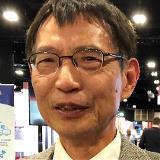 Kevin Zen, PhD, Senior Director, IGM Biosciences
Kevin Zen, PhD, Senior Director, IGM Biosciences
Thursday, May 15, 2025 8:30 am - 5:30 pm | Friday, May 16, 2025 8:30 am - 12:30 pm
TS7C: Bioassay Development and Analysis
Key Topics:
- Introduction to Bioassays
- Guidance Documents on Bioassays
- Design & Development
- RobustnessValidation & Post Validation
- Statistical Analysis Models
- Examples / Case Studies
INSTRUCTOR BIOGRAPHIES:
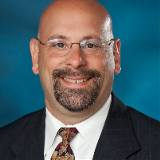 Steven Walfish, Owner, Statistical Outsourcing Services
Steven Walfish, Owner, Statistical Outsourcing Services
* 不測の事態により、事前の予告なしにプログラムが変更される場合があります。
アジェンダ・講演者・スポンサー更新
2025年 プログラム
表示する:

工学ストリーム

腫瘍ストリーム

多重特異性ストリーム

免疫療法ストリーム

発現ストリーム

分析法ストリーム

免疫原性ストリーム

新興治療ストリーム

機械学習ストリーム






